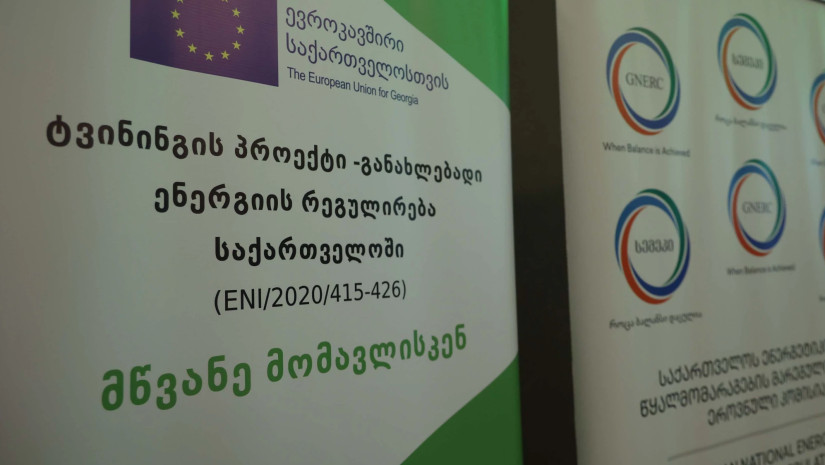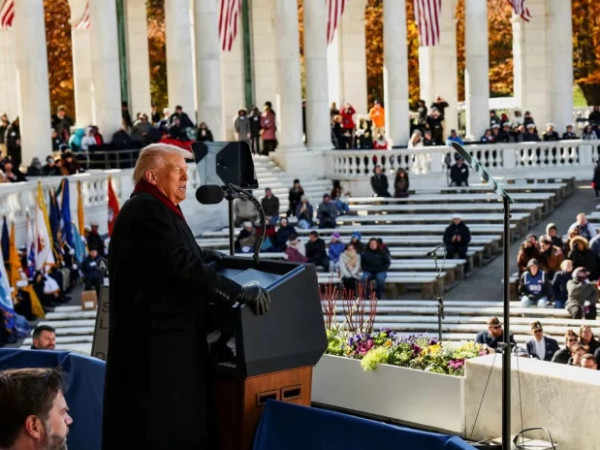The European Union-funded Twinning Project in the Georgian National Energy and Water Supply Regulatory Commission (GNERC) - "Green Energy Regulation in Georgia" was completed. The closing ceremony of the project was opened by the GNERC Commissioner, project leader from Georgia, Giorgi Pangani and project leader from the EU member state, Dietmar Preinstorfer. They highlighted the achievements and effective results of the project.
The GNERC Chairman Davit Narmania, First Deputy Minister of Economy and Sustainable Development of Georgia, Romeo Mikautadze and Deputy Minister of Foreign Affairs of Georgia Teimuraz Janjalia made keynote speeches at the event.
According to Davit Narmania, the GNERC Chairman, a number of successful EU funded projects were implemented in the GNERC.
“During previous 10 years, a number of major projects were implemented in the GNERC with the European Union funding, which helped us to improve the activity of the Commission in various directions. Within the framework of the twinning project, the GNERC has developed tariff methodologies based on which transparent and fair tariffs are set, market monitoring and audit rules were developed, a cost-benefit analysis of smart metering implementation was carried out and a draft regulatory strategy supporting smart metering was developed, digitalization strategy was drafted. In addition to the twinning projects, other projects are also implemented in the GNERC with the European Union funding. Among them, the Technical Assistance and Information Exchange Instrument (TAIEX) is being launched, which will help the GNERC implement and regulate electricity battery storage, having a positive effect in terms of improving the reliability of the electricity grid. I hope that our cooperation within the framework of the EU projects will continue and be even more effective," said Davit Narmania.
Giorgi Pangani, the GNERC Commissioner and the project leader from Georgia, positively evaluated the progress of the 4th twinning project in the GNERC and emphasized the role of the European Union in the development of the Georgian energy sector.
A fundamental reform is being carried out in the energy sector of Georgia, which aims at bringing the Georgian legislation in line with that of the European Union. The GNERC is constantly improving regulations to ensure the most attractive regulatory environment for both consumers and companies operating in the energy sector. In this process, it is very important to share the knowledge and experience of leading European organizations. I would like to thank the European Union for such an opportunity, which the GNERC takes advenatage of with the help of twinning projects and other instruments," said Giorgi Pangani.
As per Dietmar Preinstorfer, the project leader from the EU member state, the project has made significant progress in all aspects.
"Leading this project was a great honor for me. I collaborated with exceptional experts from various organizations. We successfully shared knowledge and experience on network tariffs, demand side management, and the regulation of renewable energies. I would like to extend my gratitude to the GNERC's management and all the experts involved for their valuable contributions", said Dietmar Preinstorfer.
At the event, the attendees were addressed by Thomas Mühlmann, the Ambassador of the Republic of Austria to Georgia, Ernst Peter Fischer, the Ambassador of the Federal Republic of Germany to Georgia, and Katalin German, the Head of the Program Department of the European Union Delegation in Georgia. They acknowledged that the twinning project, funded by the European Union, was successfully completed, and significant results were achieved with the support of the GNERC.
The objective of the 4th project, "Green Energy Regulation in Georgia," which was funded by the European Union with 1,500,000 Euros, was to aid the development of renewable energies by aligning Georgia's existing regulatory framework for electricity and natural gas markets with the European Union standards. The duration of the project was 27 months, which was implemented by the Austrian Energy Regulatory Authority (E-Control) in cooperation with the German Federal Network Agency (BNetzA). The direct beneficiary of the project was the Georgian National Energy and Water Supply Regulatory Commission (GNERC).
(R)



















